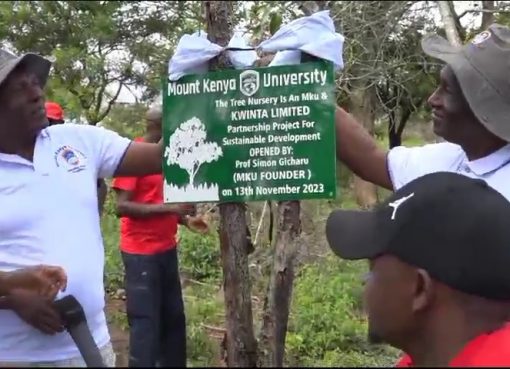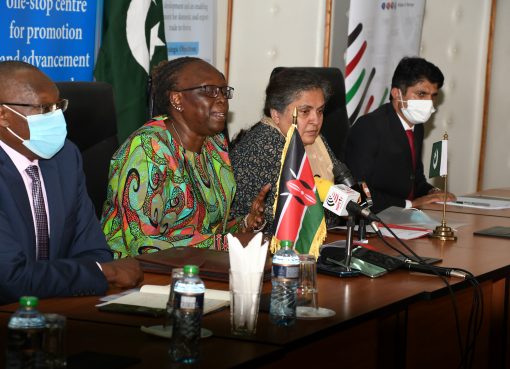Nakuru County Government plans to put in place legislation for a single business permit to ease the process of acquiring trade licenses and help attract more investors.
Trade, Culture, and Tourism County Executive Committee Member (CECM) Mr Stephen Kuria said the county government was keen to put up the legislative frameworks aimed at achieving the single-business permit which will help traders improve on their businesses in addition to attracting more investors to the county.
He said the County government was in the process of amending the Finance Act that will birth the issuing of a single business permit to reduce the number of requirements for businesses that will in turn enable traders to concentrate with their core business instead of spending their time looking for permits.
The CECM indicated that the measure would ease the cost and convenience of doing business so that traders and Small and Medium Enterprises (SMEs) do not have multiple licenses for them to trade.
Kuria highlighted Governor Susan Kihika’s commitment to reviewing the multiplicity of levies and taxes affecting the devolved unit’s intra-county and inter-county trade thereby discouraging investments while raising prices for the end consumer.
“We are taking deliberate steps to reduce the cost of doing business and position Nakuru as an essential destination for local and foreign investments. As a county government, we are committed to actively pursuing interventions that will make Nakuru the economic powerhouse of the region, thereby making it the destination of choice where trade and investment thrives,” said the CECM
The chief officer indicated that the county had identified its trade and investment prospects through pursuing active partnerships to unlock its potential and would provide support in value addition, trade and investments to help achieve the objective of transforming Nakuru into a middle-income economy.
Attracting and retaining investments, Kuria said, entailed businesses partnering with the county government to enhance development through building infrastructure, restoration of natural resources and offering productive jobs in order to raise the living standards for every resident throughout the devolved unit.
Speaking at the county headquarters during the inauguration of the newly appointed members to the Sub-County Alcoholic Drinks Regulation Committees, the CECM disclosed that Governor Kihika’s administration had embarked on various plans to boost the region’s attractiveness to investors, starting with reforms in the tax regime through harmonization of fees and elimination of non-tariff barriers to trade.
The 11 Sub-County Committees are established under section 9(s) of the Nakuru County Alcoholic Drinks Control Act 2014 which provides a law for control, licensing, regulation and general administration of the manufacture, advertisement, sale and consumption of alcoholic drinks in the devolved unit.
Nakuru, regarded as a key food basket in Rift Valley, also seeks to lure investors to its vibrant agricultural sector to add value to its products and gain direct sales of its farm produce to foreign markets including East African countries. The county is one of the leading producers of potatoes, carrots, milk and vegetables among other crops.
Economic survey findings by various institutions show Nakuru is fast rising to become the most preferred investment destination for local and international investors.
It is projected that the county has an economic potential worth Sh200 billion in agricultural value addition, manufacturing, geothermal exploration, tourism, and real estate.
Results of a survey released by the Institute of Economic Affairs show it is easier to start a business in Nakuru town compared to five other populous urban areas.
Economists attributed this to the mainly reduced tax burden that has made it more attractive to investors.
The study gave the county an overall score of 89 in the tax sub-cluster followed by Eldoret (78) and Machakos (67). The bottom three in the category were Kisumu (64), Nairobi and Mombasa at 56 and 54 respectively.
The county saw its land prices rise by an average of 12.7 per cent in 2017, according to the 2018 County Land Price Report.
In addition, the economic potential of the county was captured in a World Bank 2015 Survey which showed the county’s gross domestic product per capita at $1,413, the fourth-highest in Kenya after Kiambu, Nyeri and Kajiado.
By Esther Mwangi





